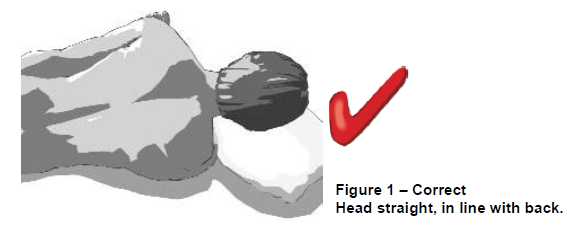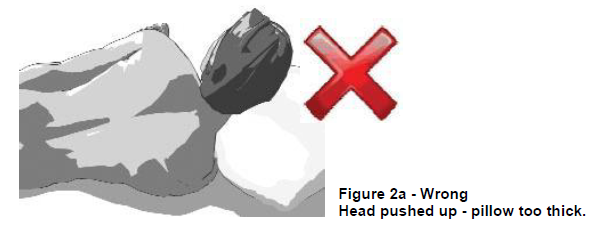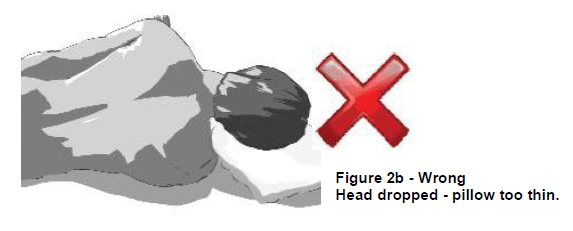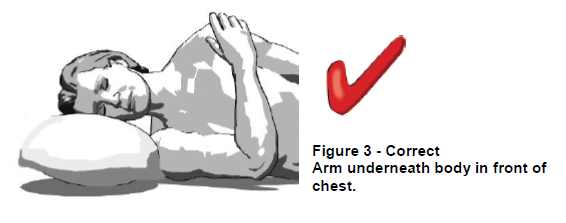Neck pain
This page provides information for people who are experiencing neck pain. Most acute neck injuries are not serious and the pain will settle over the next few weeks.
Your injury may have been caused by a motor vehicle incident but the advice on this page is useful for other causes of neck pain.
increasing pain in the neck muscles following an incident is sometimes called whiplash. When the body stops suddenly the neck is pulled backwards and forwards by the weight of your head. An X-ray is not often necessary for the assessment of your injury.
Staying still for too long is unhelpful and can delay recovery. Usually, pain and stiffness will get worse during the first 24 to 36 hours before gradually improving. Most people will feel more comfortable within a few weeks but sometimes it can take longer.
To prevent this type of injury it is important to make sure that seat belts and car headrests are properly adjusted to your needs. Advice regarding this can be found in most car manuals or online.
Managing your neck pain
- Take regular pain relief such as paracetamol and ibuprofen. Please follow the dosage instruction in the packet. Your local pharmacist will be able to advice you if you are already taking any other medications.
- Maintain a good posture while awake and when sleeping.
- Follow the exercises listed on this page.
- Use of heat packs maybe helpful. Leaflet ‘Ice and heat treatment at home GHPI0659’ is available on the Gloucestershire Hospitals website (www.gloshospitals.nhs.uk).
Exercise
Gentle exercises to keep your neck mobile will help to prevent long term pain and stiffness. Returning to normal activities and exercise is the most important way that you can:
- ease stiffness and pain
- build up neck muscle strength and stamina
- improve your flexibility and general fitness
The muscles in your neck need to be used as they will weaken very quickly.
To complete the following exercises, you should stand or sit facing forward:
- Move your head to look from side to side. At first this can be done while you are lying down. Stretch around as far as you can. This will feel uncomfortable.
- Move your head to look up and down.
- Move your head to tilt your ear towards your shoulder. Do not make circular movements.
Remember hurt does not equal harm.
Correct sleeping posture
To avoid neck pain, you should always sleep on a firm bed, either on your back or on your side. Try not to sleep face down as this will put added strain on certain neck muscles. If you sleep on your side, the following information is important:
- Make sure that your head and neck is straight, for example, in line with the rest of the spine (as in Figure 1, and never as in Figure 2a and 2b).
- The number of pillows you use may vary due to their thickness but you need to keep your head straight.
- The arm on which you are lying must be kept in front of your chest, not under it or behind (see Figure 3).
Summary
Your pain should ease within 2 weeks. Most people have a full recovery in about 4 to 6 weeks. You should follow the suggested exercises for at least 6 to 8 weeks. This will help prevent the symptoms returning.
Contact information
If you have severe neck pain, altered vision, headaches or weakness in your arms/hands, contact NHS 111 for advice.
NHS 111
Tel: 111
Further information
Physiotherapy
You can refer yourself to a physiotherapist for advice, lease telephone or visit the following website.
Tel: 0300 422 3040 - Cheltenham General Hospital
Tel: 0300 422 8527 - Gloucestershire Royal Hospital
Website: www.gloshospitals.nhs.uk/our-services/services-we-offer/physiotherapy/how-can-i-see-physiotherapist/
NHS
Website: www.nhs.uk/conditions/neck-pain/Pages/Introduction.aspx
Versus Arthritis
Website: www.versusarthritis.org/about-arthritis/conditions/neck-pain/



